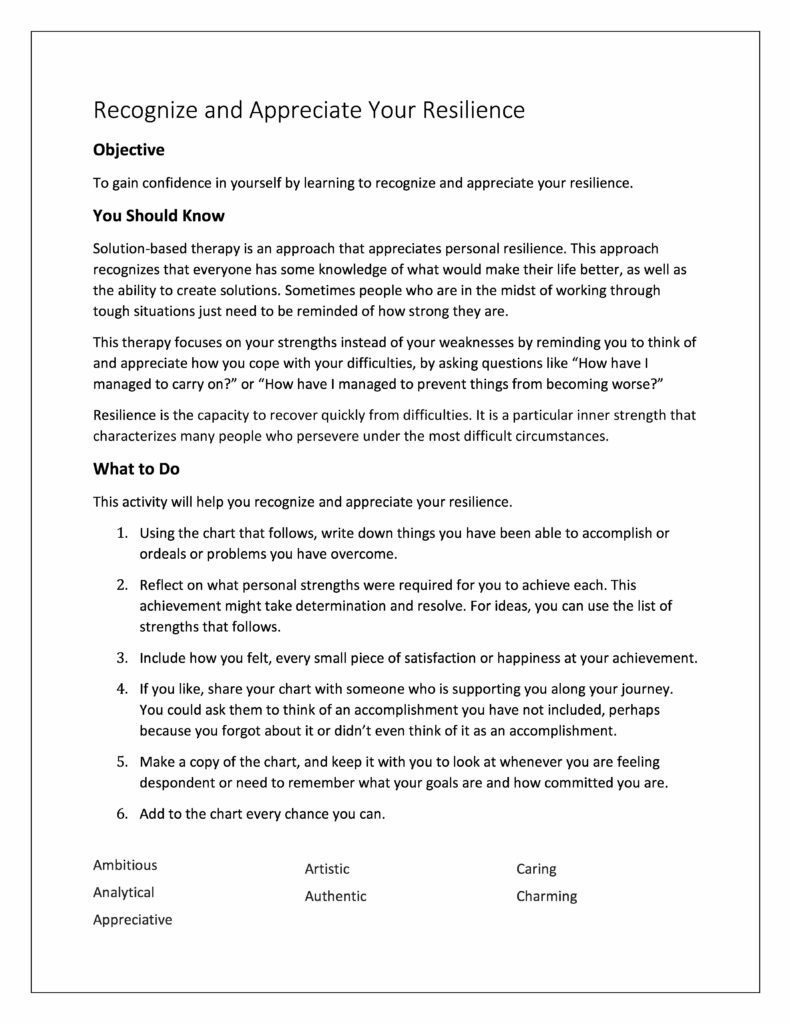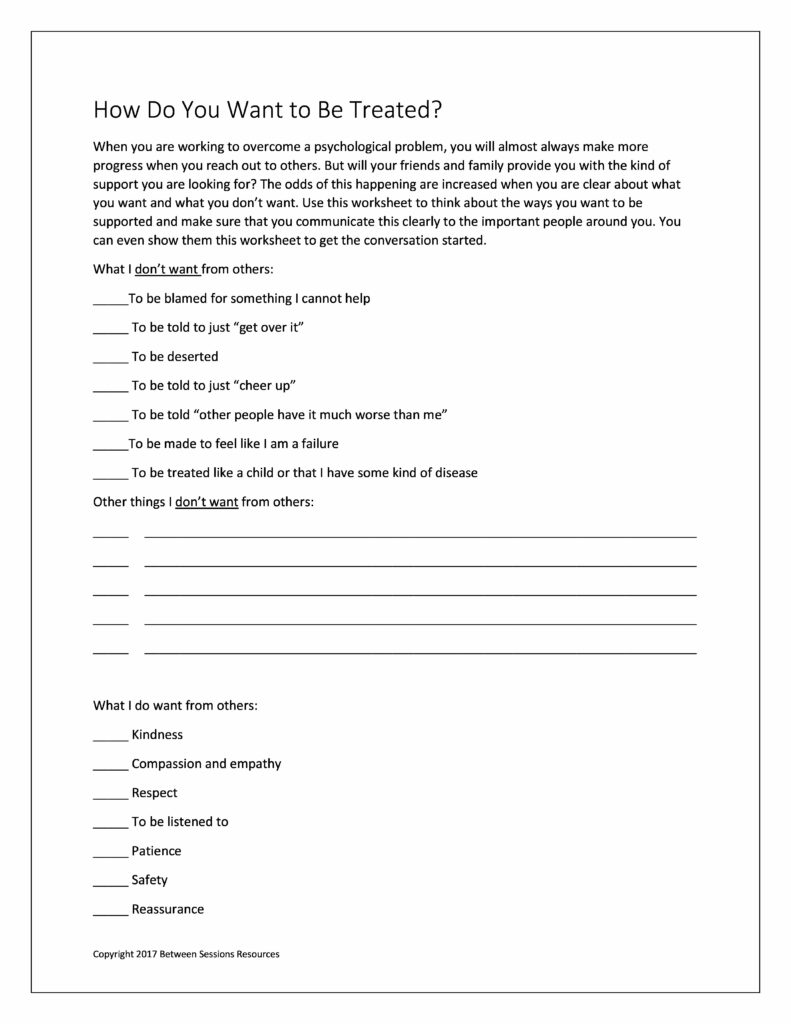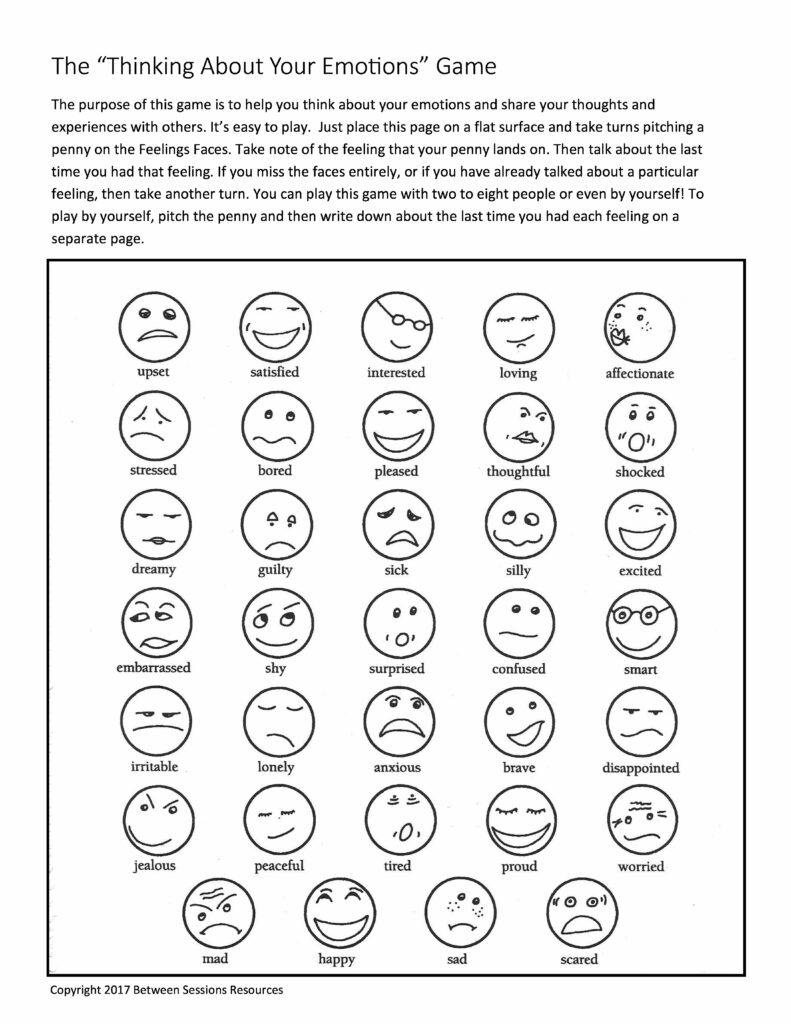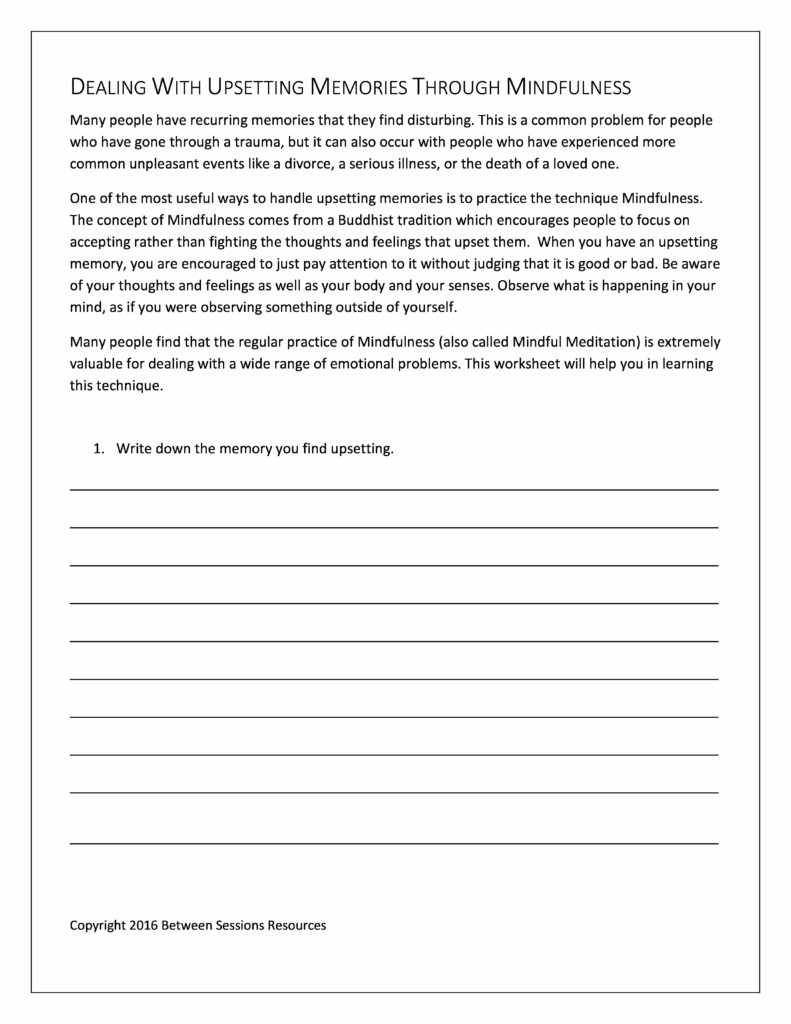This worksheet is designed to help people who are grieving replace self-critical thoughts with self-compassion. (loss, mourning, grieving, 0619)
This simple Mood Diary can help clients keep track of their predominant mood each day, what influenced their mood, and what they did in response to their mood. (0219, emotions, log)
This worksheet is designed to help people understand the concept of resilience and focus on the character traits that make them more resilient. (Solution-Focused, positive psychology, self-esteem, 1118)
This worksheet is designed to help people learn how to be more compassionate toward themselves by imagining an infinitely compassionate imaginary friend, then answering questions as if that friend were talking to them. (self-compassion, depression, anxiety, 0218)
This worksheet helps people learn to treat themselves with more compassion, much like they would treat a loved one in need. (depression, self-care, 0517)
This worksheet is designed to help people think about how others can help them with their psychological problems. The worksheet asks them to think about both the things that they want from others as well as the things they don’t want. (depression, social skills, communication, 0417)
This worksheet is designed to help people think and talk about their feelings. Players pitch a penny on the worksheet and then talk about the feeling where the penny lands. The game can be played in a small group or even by an individual. (emotional intelligence, depression, communication, social skills, 0317)
This worksheet asks clients to consider anything that might have helped them in finding solutions to their problems, whether it was something they learned in therapy or something they learned on their own, such as self-help books, advice from a friend, sudden insights, and so on. (0217)
Many people have recurring memories that they find disturbing. This is a common problem for people who have gone through a trauma, but it can also occur with people who have experienced more common unpleasant events like a divorce, a serious illness, or the death of a loved one. One of the most useful ways to handle upsetting memories is to practice the technique Mindfulness. This worksheet will help people learn and practice this technique. (PTSD, DBT, divorce, mindfulness, trauma, 1116)
Learning to accept reality is an important part of living in the present. Distorting reality can lead to depression, anxiety, disappointment in your relationships and more. This worksheet has three parts to help people understand how they distort memories from their past, events in the present, and thoughts about their future. (DBT, CBT, Thought-Changing, 0916)










